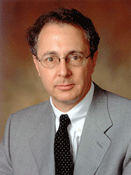 |
| Merck R&D chief Roger Perlmutter |
As the Disneyland measles outbreak continues to spread, some are pointing the finger at Merck ($MRK), maker of the only U.S.-approved measles vaccine. But when it comes to encouraging the public to get vaccinated, there's a limit on how much the company can do, its R&D chief says.
As Roger Perlmutter told the Financial Times Wednesday, Merck is "extremely proud of what we have been able to do to vanquish pediatric diseases that cause enormous suffering and death." But when it comes to reassuring the public about the safety of childhood vaccines, it can only go so far because it's a "commercial entity."
"There are many who believe we are in some way prejudiced," he told the paper.
Instead, Perlmutter said, the government and other advocacy groups need to do their fair share to ease citizen's antivaccination fears, which have been linked to the outbreak that so far involves at least 102 cases.
Over the past week, it's questionable whether U.S. political figures have done more good or harm in that department. While President Barack Obama and Hillary Clinton have come out with strong pro-vaccine statements, possible GOP presidential hopefuls Chris Christie and Rand Paul have both spoken out in support of parents' rights to choose whether to vaccinate their children.
Much of the vaccine controversy has come out of a now-discredited study that linked the measles-mumps-rubella (MMR) vaccine to autism. Thanks in part to the study, in California--the epicenter of the current outbreak--800 schools have vaccination rates below 92%--the threshold for herd immunity, the FT notes.
"The fact that someone can publish a complete fabrication and have a big impact on vaccination practice is a very horrible story indeed," Perlmutter said.
Still, some continue to lay the blame on Merck--including some pro-life groups, who say they object to the rubella component of the MMR vaccine because it was made using cell lines derived from aborted fetuses, The Wall Street Journal's Pharmalot reports. As a result, they say they've avoided the vaccine ever since 2009, when Merck ended production of a separate measles vaccine--and some are now calling on the drugmaker to change the vaccine's composition.
"The current outbreak would not be as severe or widespread if parents had the ability to access separate vaccines," Debi Vinnedge, director of a nonprofit, pro-life organization, told Pharmalot. "Parents are being unfairly targeted as the problem when Merck is the problem. If they had the separate doses available more people would have been vaccinated."
But as a Merck spokeswoman told the publication, there is "no medical reason" to administer the three antigens separately, and it will continue to offer them together as per CDC guidelines.
- see the FT piece
- get more from Pharmalot
Special Report: The top 5 vaccine makers by 2013 revenue - Merck | The most influential people in biopharma today - Roger Perlmutter - Merck